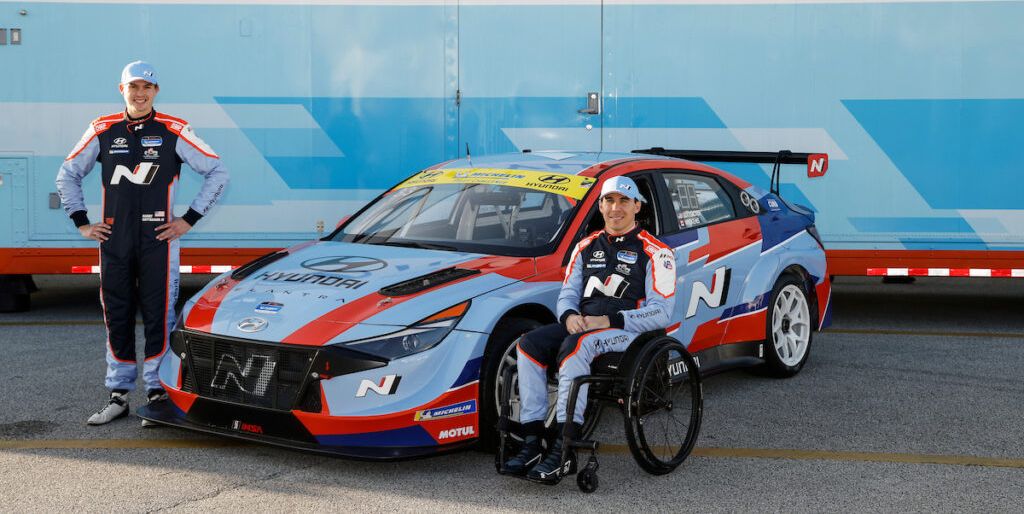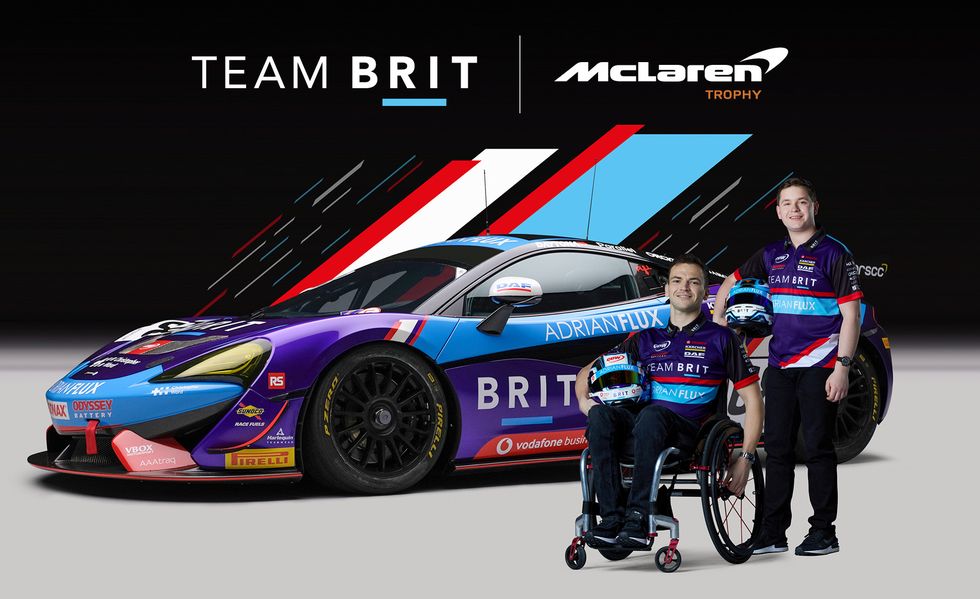Drivers with Disabilities Are Tackling Performance Driving

A day at the track is not limited to the able-bodied anymore. Performance driving programs are out there for people with disabilities.The use of unique controls can open up new possibilities for people with restricted arm or leg movement or visual impairment.In the world of racing, drivers with limited mobility have been participating—and excelling—in Esports as well as on real-world racing teams.
A track day full of low-slung, loud, and exuberant supercars is a dream come true for many car enthusiasts. In the past decade, supercar track experiences have become popular and relatively common. Most major racetracks have a program for first-timers to get behind the wheel, either with their own cars or rented speed machines. Even better, some have instructors to help new drivers get acquainted with high-speed driving.
For those with disabilities, these fun-run events can seem inaccessible, but there are people all around the world helping to make driving and even competing on track something that drivers with vision or mobility concerns can participate in.
“Just because you have a physical disability or visual impairment, it does not mean experiences like this should be unavailable to you, and we want as many [people] as possible to be able to enjoy driving a supercar around a track,” explained Dan Jones of Driving Experience Days Limited in the U.K.
Driving Experience Days Limited has partnered with a leading disability organization, AbleNet, to provide several high-performance adapted courses for those with restricted arm and leg movement, as well as people who are visually impaired or blind, bringing the joy of motoring to more drivers.
The cars involved have been specially adapted with unique controls to make them more usable by those with limited mobility.
A common modification is to the steering wheel, an addition called a steering ball that allows a car to be maneuvered with just one hand, even one with limited grip. This allows those unable to operate the traditional pedals to operate the vehicles with hand controls.
Hand controls to replace foot pedals.
Car and Driver
Many of the vehicles feature an automatic gearbox as well, with the roster of rides including the Aston Martin DB9, McLaren 650S, Lamborghini Gallardo, Ferrari California, Nissan GT-R, and Audi R8. Even visually impaired drivers can take a spin in these supercars, with the help and guidance of a trainer.
Those programs are both outside the U.S. for now, but there’s a nonprofit called Adaptive Driving Experience that is currently putting the final touches to a U.S.-oriented program that is oriented toward military veterans. “We have a race car derived from the NASCAR Car of Tomorrow chassis that Brian Keselowski raced in the Daytona 500,” director Danny Chrissanthis told C/D. “It’s got a small-block Chevy that makes about 400 horsepower but features swivel chairs and adapted controls, as well as a second set of controls for the passenger.”
The idea is that a pro racer can coach the driver from the passenger seat, or take control and provide a hot lap. “We did all our modifications last year. We’re just waiting on our helmets and fire suits so we can host bigger groups,” explained Chrissanthis.
The orders are in, so the program is set to start, but Adaptive Driving Experiences is just one of a few such programs in the U.S. Chrissanthis said they’ve contacted “various racetracks” about offering the program but that the response has been muted, with many saying the project just wouldn’t make enough money to cover the costs.
It’s forced the organization to take a different approach. “I believe getting out on track and having people see that, watching the videos and how this experience impacts people will open doors and create more opportunities,” he says.
Automaker Programs for Disabled Drivers
The goal of expanding these high-performance driving experiences and lessons to those with limited access is shared with a few other organizations, including automakers. In 2021, BMW and Mini expanded their Driving Experience program to include Safety Training for people with physical disabilities. The program includes lessons about braking, evasive maneuvers, slalom driving, driving the ideal line, and drifting.
While Driving Experience Days Limited’s program uses flashy supercars, the BMW 230i, BMW M3, and Mini John Cooper Works the BMW program uses have slightly different controls. Rather than use the ball, the BMW and Mini cars retrofit the steering wheel with a ring that acts as the throttle. This allows a user with limited lower-body mobility to accelerate without taking their hands off the wheel. These cars also have a hand-operated brake lever, to help users get control of the 510-hp M3 on track.

BMW’s ring-type adapted steering wheel.
BMW
“Driving is self-determination and thus also a kind of freedom,” says instructor Bettina Schmidt-Kiendl in a news release by the automaker. Schmid-Kiendl uses a wheelchair and is an active driver. “With the new program, we want to give people with comparable disabilities the joy of driving that I also live every day.”
Racing Academies and Motorsports
Competitive drivers with disabilities have the opportunity to take their speeds to the big leagues. Team BRIT Racing is a sports-car team with a team of disabled drivers that participates in the British GT Championship, British Endurance Championship, Britcar Trophy, and Citroën C1 Series. Conceived in 2015, the racing team offers a racing academy for those with disabilities. There’s also an eSports team competing in Gran Turismo, iRacing, Assetto Corsa, and rFactor 2—and several of its drivers have secured podium finishes.

Team BRIT
Racing is a different beast than track experiences, so Team BRIT Racing has developed a bespoke hand control system to operate the steering, brakes, clutch, throttle, and gearbox of its cars and racing sims. The Motorsport U.K.-approved system is how the team can compete against able-bodied racers in a variety of motorsports.
With plans to race in the Le Mans 24-hour endurance race, the racing team has already delivered impressive finishes in the Britcar Trophy and Britcar Endurance GT4 ProAM, among others.
Accessibility for the Win
Support for disabled drivers and advancements in this field don’t just benefit young enthusiasts who don’t want their disabilities to keep them from the cockpit. Racing remains dangerous, and accidents often leave formerly able-bodied racers unable to compete.
Rising IndyCar star Robert Wickens suffered a violent crash in the 2018 ABC Supply 500 at Pocono Raceway, which left him with limited use of his legs. Wickens (pictured at top) returned to racing in 2022 in the 2022 Michelin Pilot Challenge with Bryan Herta Autosport behind the wheel of the #33 Hyundai Elantra N with specially adapted hand controls.
He quickly found success with BHA, scoring a podium with teammate Mark Wilkins in his first race at Daytona, and winning at Watkins Glen International and Canadian Tire Motorsports Park. He finished his first season in sixth place in the 2022 TCR championship and is continuing in 2023.
Perspective is everything: accessibility may seem like a niche concern to most motorists, but expanding the world of motorsports and speed to those with different abilities is a win for everyone. If everyone can enjoy driving, then we can have more fun on the roads and tracks together.



